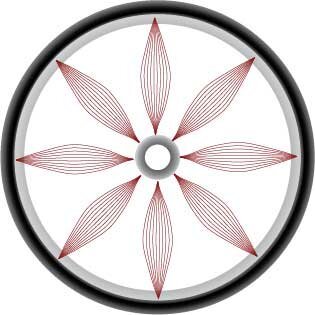Unnovation for health and performance
That men do not learn very much from the lessons of history is the most important of all the lessons of history.
Aldous Huxley
Everyone knows that something is desperately wrong with the human body and the human experience. Over the course of the last several decades, we have suffered a rapid and ominous increase in so-called non-communicable diseases, also referred to as “lifestyle diseases.” These are medical conditions such as obesity, diabetes, heart disease, cancer, and respiratory disease. The World Health Organization reports NCDs to be by far the leading cause of mortality in the world, representing over 60% of all deaths. Currently, NCDs kills 36 million people a year, a number that is expected to rise by 17–24% within the next decade. The NCD Alliance, an advocacy and outreach organization, describes NCDs as “a global emergency.”
Most of us understand that something must be done but unfortunately, many of us set out to reinvent the wheel of human health; we try to create new health programs and methods from scratch. We want our wheel to be really good, so we start from what we believe are first principles: physiology, biochemistry, anatomy and psychology. We believe that if we get all these scientific details lined up just right, our wheel will be really effective and will solve our health care predicament. So, we do research into exercise science and public policy. We put people on stationary bikes and track the results; we scan the brains of meditators; we see what happens when people engage in positive social interactions or natural settings.
Unfortunately, many of these efforts are redundant. In fact, the “wheel” of human health already exists. We already have a proven product that’s been rolling for over 2,000 years. Beginning with the Buddha’s legendary session under the bodhi tree in the 4th or 5th century BCE, Eastern culture has developed a highly sophisticated method of holistic health, mind-body practice, skill development and training. This is the cultural home of meditation, martial art, tai chi, yoga and a host of arts, all based on the understanding that the entire mind-body-spirit can be transformed through regular engagement and experience. It's also highly consistent with recent discoveries in neuroscience, especially neurogenesis and neuro-optimism.
Our problem is that we have no sense of history. We act as if the modern world began with Descartes, or with the Renaissance, or with the discovery of America. We think that health and fitness began with Arnold, Jane Fonda or Nike. In our ignorance (and quite possibly our arrogance), we feel that Western culture is the ultimate reference point for solving every problem relating to the body and the human predicament.
But this perspective is wasteful and even dangerous. To paraphrase George Santayana, “Those who don’t remember the past are condemned to waste enormous amounts of time and resources re-inventing things that already work.” In our effort to reinvent the wheel of human health, we have embarked on a prodigious and largely unnecessary work project. We run thousands of research projects at great expense. We talk endlessly about the need to get people moving. We do laboratory studies and invent new technologies; we fill up training facilities with millions of dollars of unnecessary equipment. We hold conferences and publish conclusions that have already been proven, hundreds if not thousands of years ago:
the human mind, body and spirit are intimately interconnected the mind-body-spirit responds favorably to training and practice exercise of almost any variety works meditation and attention stabilization works positive social engagement works a culture of health works
All of this is very old news. The ancients would simply shake their heads at our ignorance and our "discoveries." And so, it’s time for us to exercise some humility and an appreciation of the wheel that’s already there. We don’t need innovation in health; we need unnovation. We need to start with what already works: experiential health promotion based on the ancient model of simplicity, discipline and engagement. We need to strip away all the external complications and get back to fundamentals of direct contact and physical experience.
Obviously, ancient Eastern practitioners didn’t have to deal with modern conditions and pathologies. The original yoga and tai chi teachers had no experience with sedentary living, industrial food production, workplace stress, electronic devices or an exploding human population. But they did experience hardship, suffering and challenges to their health. Their knowledge remains essential, regardless of the details of modernity. Let’s start with the wheel that already exists. Let's start with a practice.
